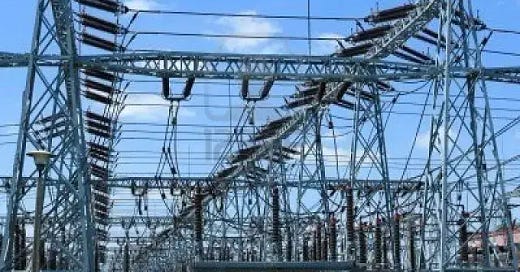Epileptic Power: Nigeria loses 26,200GWh to gas flaring
Electricity
By Ediri Ejoh
NIGERIA suffered electricity losses estimated at 26,200 Gigawatts per hour, which can power 7.5 million homes, due to gas flaring by oil companies in the first eleven months (January – November) of this year.
This represents 8.4 per cent increase when compared to 24,000 Gigawatts per hour lost in the corresponding period of 2023.
This came at the backdrop of system disruption (collapse) also rose 75 per cent to 12 times from three in the corresponding period of 2023.
Nigeria struggled to generate above 4,000 megawatts, MW of electricity to serve households and businesses during the period due, partly, to limited gas supply to the Electricity Generation Companies, GENCOs.
Data obtained from the latest report of the National Oil Spill Detection and Response Agency, NOSDRA, put the monetary value of the 262.1 Million Standard Cubic Feet, MSCF flared gas during the period at $917.3 million.
According to NOSDRA, the defaulting companies, including the International Oil Companies, IoCs, were liable to fines amounting to $524.2 million.
Providing a further breakdown of the volume of gas flared across oilfields, NOSDRA disclosed that flaring by companies operating onshore rose by 10 per cent to 146mscf, against 116mscf flared by companies operating offshore.
According to NOSDRA, the volume of gas flared during the period under review was equivalent to a carbondioxide emission of 13.9 million tonnes. NOSDRA lamented that despite efforts to reduce gas flaring, it has continued in Nigeria since the 1950s, releasing carbon dioxide and other gaseous substances into the atmosphere.
Meanwhile, a member of the House of Representatives, Babajimi Benson, Lagos has sponsored a bill to address the “longstanding and damaging practice of gas flaring” in the country.
Leading the debate in the green chamber, Benson said when passed into law, gas flaring would only be allowed in “strictly regulated circumstances”.
This, he said, would encourage the utilisation of gas resources to foster power generation and economic growth, adding that the bill proposes severe sanctions for violators.
He stated: “The bill aims to mitigate the environmental, health, and economic impacts of gas flaring, aligning Nigeria’s oil and gas operations with international climate change commitments.
“This bill is designed to address these issues while bringing Nigeria in line with global standards such as the Paris agreement on climate change.
“The bill provides for a comprehensive prohibition of gas flaring except in emergencies or when explicitly authorised by the Nigerian Upstream Petroleum Regulatory Commission (NUPRC).
“Operators are required to submit and implement Gas Utilisation Plans, detailing how the gas that would otherwise be flared will be captured, processed, or commercialised.
“Offenders who violate these provisions face stringent penalties, including fines of $5 per 1,000 standard cubic feet of gas flared and potential suspension of operations for repeat violations.
“This bill ensures that communities affected by gas flaring are entitled to compensation and environmental restoration, creating a mechanism for redress.
“International examples underscore the efficacy of similar legislation. Norway’s zero-flaring policy, for instance, has not only protected the environment but also maximised revenue from gas resources.”
Benson added that Nigeria’s adoption of the bill positions it to emulate such success, “ensuring a balance between environmental stewardship and economic development”.
Vanguard Media Limited



